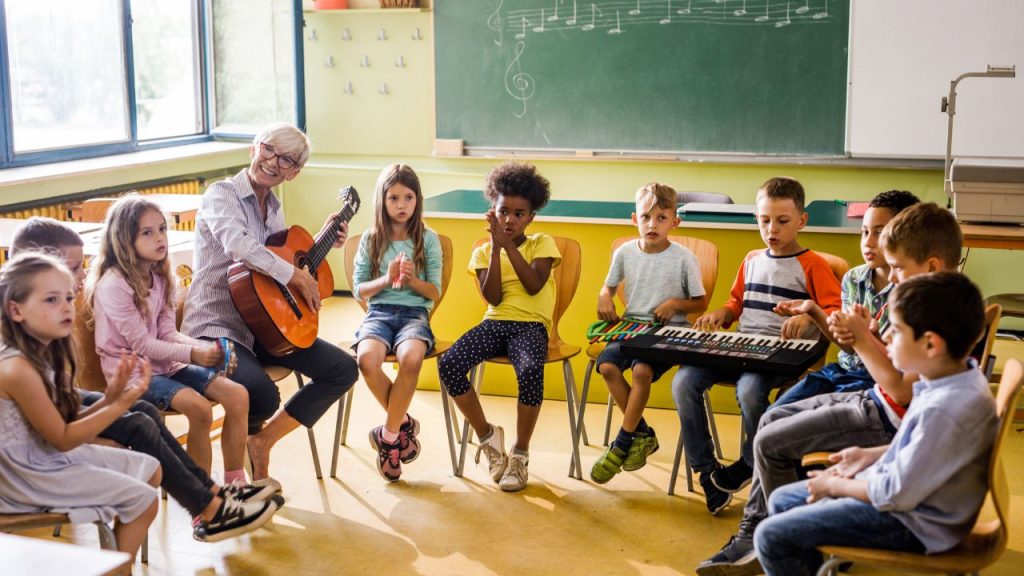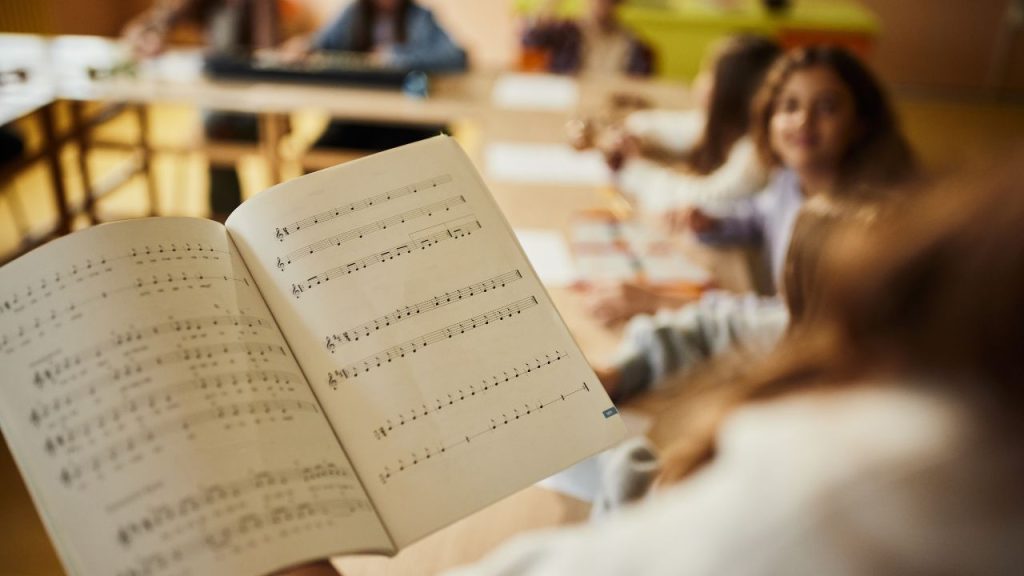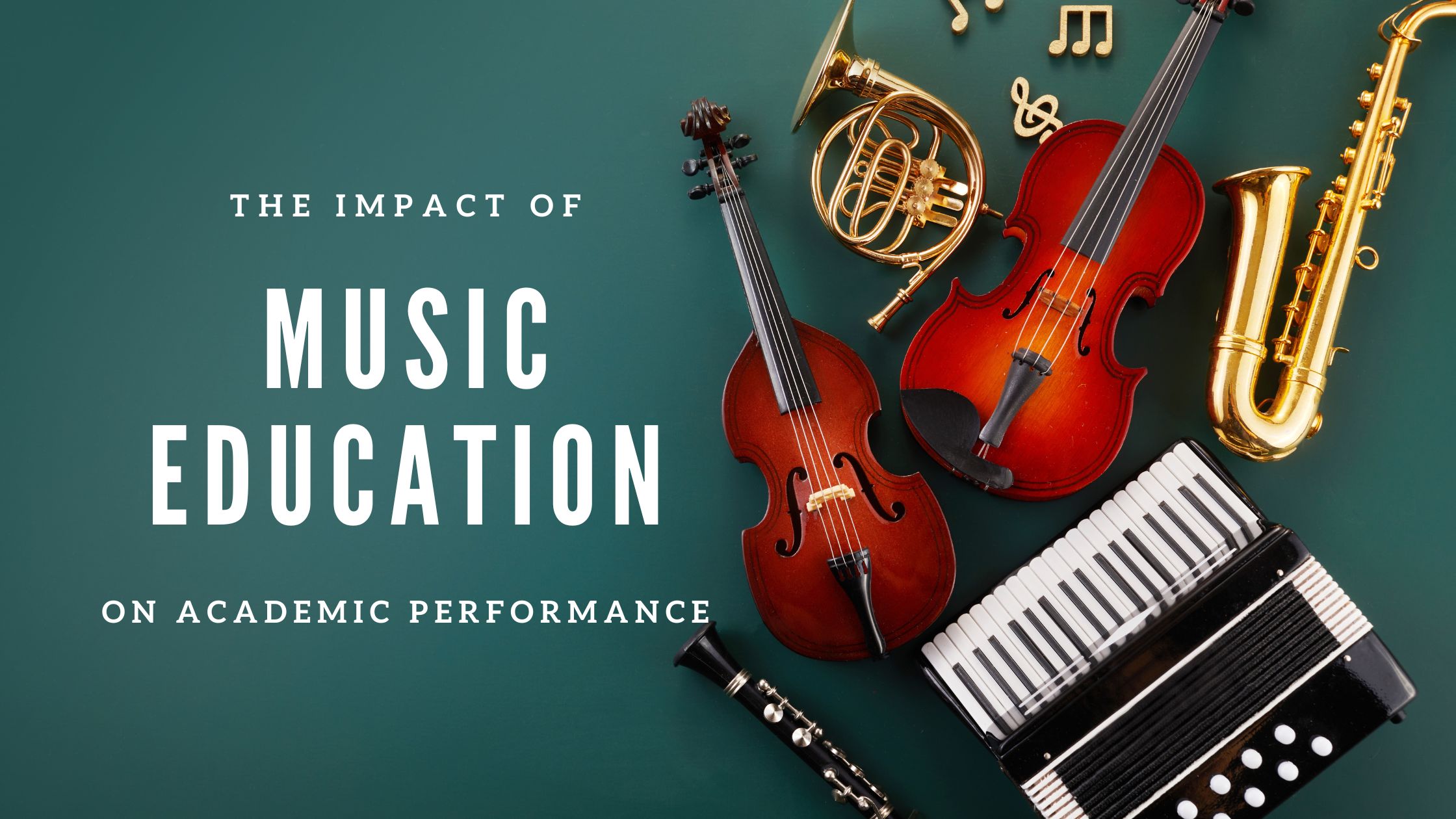Many people find music relevant to their daily lives. As an art form, some music lovers appreciate music just like others appreciate art. Some find music relaxing, while others need music to motivate them at the gym while working out.
Still, others see the type of music they listen to as an expression of who they are. People often use music to set the tone or mood in theatrical performances. Most people also associate music with certain events in their lives.
Benefits of Music Education in School

Music Builds Emotional Intelligence
Music can evoke strong emotional responses in people. For example, hearing the National Anthem at a game can evoke strong emotional experiences. Similarly, listening to a child play an instrument at a recital builds connection.
Music is Uplifting
Music is essential to people who desire to listen to something positive. We find music all around us in the beautiful sounds of nature. Nature’s song lets us know there is a higher and greater purpose in the natural wonderment of creation.
Music uplifts the human spirit. Listening to a calming melody, dancing to a fun song, or singing a silly tune can contribute to a sense of happiness and fulfillment.
Music Connects People
Music connects people to others, even those who may be markedly different from you. Music is one way we can connect to the world in an intimate and personal style. Besides great literature, no other art form is as essential as music!
How is Academic Performance Enhanced by Music?

The trend in public school is to focus instructional time on the basics of literacy, mathematics, and written expression. Sadly, this trend usually comes at the expense of the arts. A significant body of research indicates the arts – specifically music – are vital to academic achievement. Having a program in music education increases student abilities in other subjects.
Music Education Improves Student Development
For example, an Arts and Education Partnership report concluded that music education prepares, facilitates, and enhances creativity. Their studies show that development increases in music education programs. It enhances fine motor skills, increases working memory, and fosters critical thinking.
The report also states that music education can improve memory and retention of verbal information. It can also enhance math skills and improve reading comprehension. Additionally, research shows that musical training and education increases average SAT scores.
Music Teaches
Studies suggest that the more students study music, the better they do in math, science, and ELA.
Support the Arts!
So the next time your child studies with music turned on, help them improve at school by cranking it up a notch! Or, create your own school of music, have them pick up a musical instrument and learn to play.
Supporting music classes and arts education in school supports a child’s emotional, intellectual, and social development. You invest in children and keep students engaged when you support music and the arts in schools.
For more information on building a quality education for your child, check out LearnBright.org.







